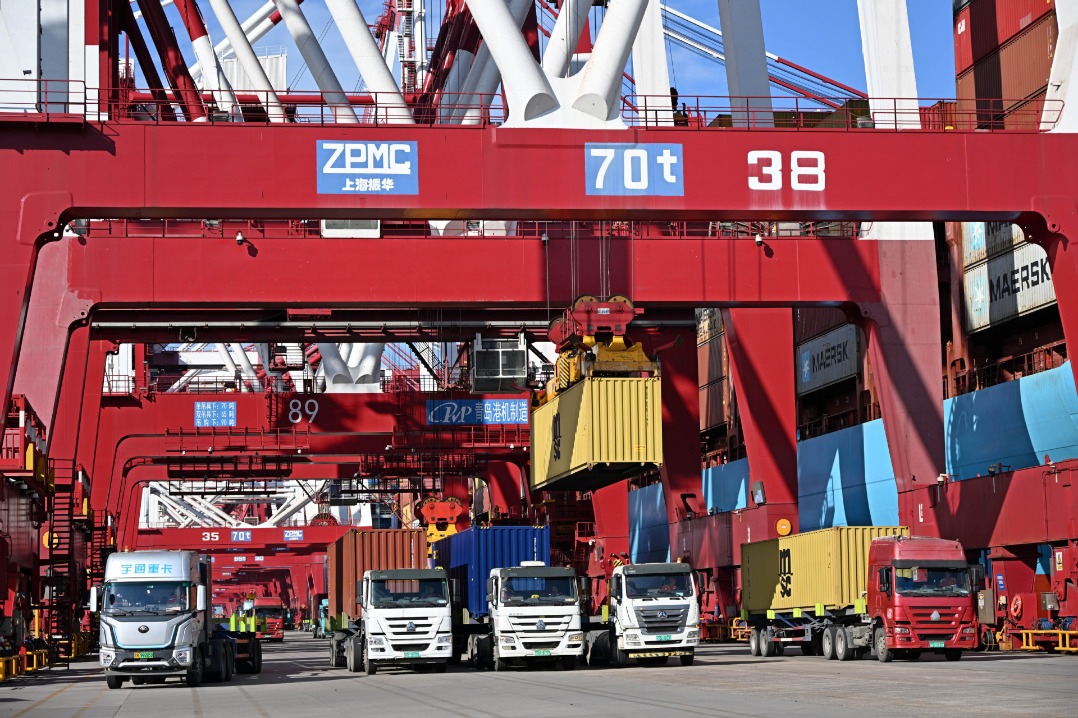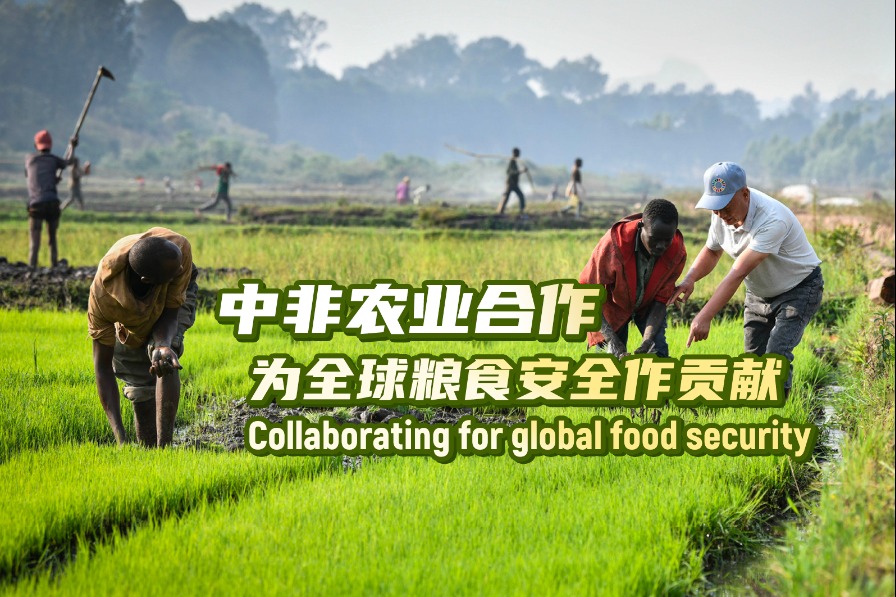ROK can ride China's quality development


Amid the rapid changes in the world order, in part due to the three-year-long pandemic and the ongoing Russia-Ukraine and Israel-Palestine conflicts, China and the Republic of Korea are celebrating the 32nd anniversary of the establishment of their diplomatic relations. The two countries' close interactions have contributed to the rapid development of their relationship based on their complementary economic structures.
The relationship between the two countries, upgraded to a substantive strategic cooperative partnership in 2008 and further strengthened in 2017, has progressed well in trade and socio-cultural exchanges. Yet compared with Seoul-Beijing economic and trade relations, cooperation in the foreign affairs and the security field lags behind. In particular, differences have emerged over mutual interests, with the intensifying strategic competition between the United States and China, especially against the backdrop of the Russia-Ukraine conflict, having a big impact on ROK-China relations due to rising economic security and geopolitical risks.
However, since ROK-China relations have developed over a long period of time, it is not possible to de-synchronize them. So the two countries should adhere to the principles that define the original diplomatic relationship.
Of late, the national status of both the ROK and China has changed significantly, with China taking measures to establish a new multipolar international order and consolidate its position as the world's second-largest economy and a country with the most complete manufacturing supply chain.
As for the ROK, it is one of the top 10 economic and technological powers in the world, and a country with immense soft power. Given the multifarious impacts of the Ukraine crisis and the Israel-Palestine conflict, the ROK needs to deepen its economic cooperation with China so as to adapt to the great historical changes — the great energy, social and digital transformations — especially because it accounts for more than 20 percent of the ROK's trade, and the two countries' cooperation is very important to maintain the stability of the regional and global industry and supply chains.
Of late, however, economic exchanges between the two sides has become difficult due to the intensification of the strategic competition between the US and China, and attempts by the US to decouple from China's economy. However, trade between the ROK and China is more or less with the focus being on semiconductors and batteries.
There is a need therefore for the ROK and China to conclude their economic exchange agreements, hold events and consultations to attract investments, and organize exhibitions and meetings to exchange cutting-edge technology information.
Moreover, the potential for cooperation between Seoul and Beijing in the digital and other high-tech sectors is very high. As the world's cutting-edge information and communications technology (ICT) sector develops rapidly, e-commerce is emerging as a new growth engine for the global economy.
Promoting the digital economy is an integral part of China's 14th Five-Year Plan (2021-25) for National Economic and Social Development and the Long-Range Objectives Through the Year 2035. As the ROK is also an ICT powerhouse and is taking measures to develop the digital economy and realize eco-friendly growth, there is ample space for the two sides to engage in cooperation to achieve their new common goals.
In its mid- to long-term strategy to boost its growth, China emphasizes the importance of high-quality development and "new quality productive forces" in response to the US' economic and technological sanctions, as well as to lead the high-tech sector in the future. To achieve that, the country has been promoting advanced manufacturing and green development, creating strategic high-tech industry clusters, next-generation ICT, artificial intelligence, biotechnology, new energy, new materials and advanced manufacturing equipment.
China has also been taking measures to secure new growth engines in fields such as high-quality service industries, high-tech manufacturing, agricultural convergence and the digital economy.
In other words, China will pursue qualitative development in accordance with its policy stance and implement policies to boost domestic demand, become self-reliant in high-tech, promote innovations and establish a China-led modernized industrial-technology system.
By doing so, China has created an ideal atmosphere for the ROK to pursue the joint development of the "Asian Semiconductor Index" and "Asian Electric Vehicle Index" using its advantage as a semiconductor and battery automobile production base and based on its objective analysis of the international order.
The ROK and China could also strengthen cooperation in digital industrialization and digital transformation to become leaders in the fields of high-tech manufacturing, service trade and new industrial sectors. As the two countries celebrate the 32nd anniversary of the establishment of ROK-China diplomatic relations, efforts need to be made to boost development in the region to build a new, better future.
The author is director of Center for Chinese Studies of the Sejong Institute. The views don't necessarily reflect those of China Daily. The views don't necessarily reflect those of China Daily.
If you have a specific expertise, or would like to share your thought about our stories, then send us your writings at opinion@chinadaily.com.cn, and comment@chinadaily.com.cn.


































